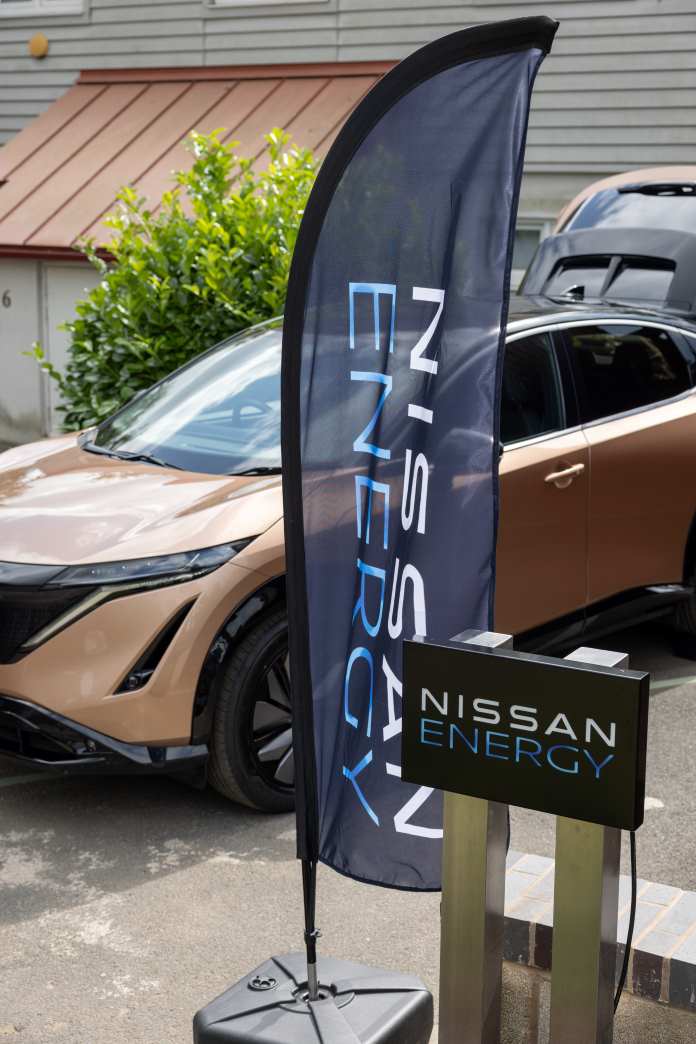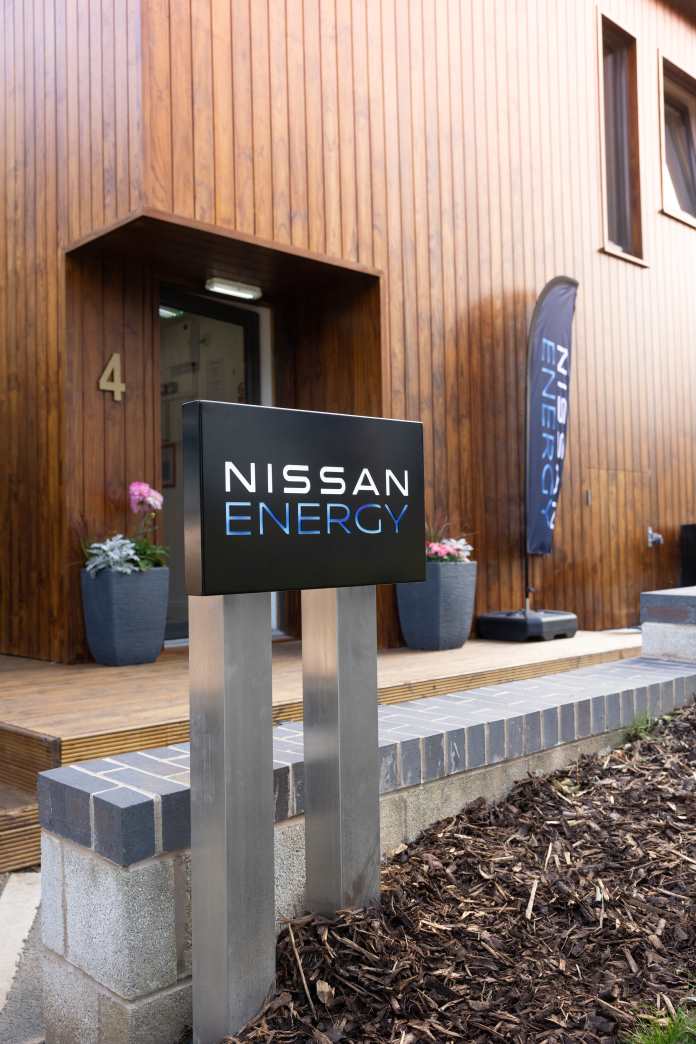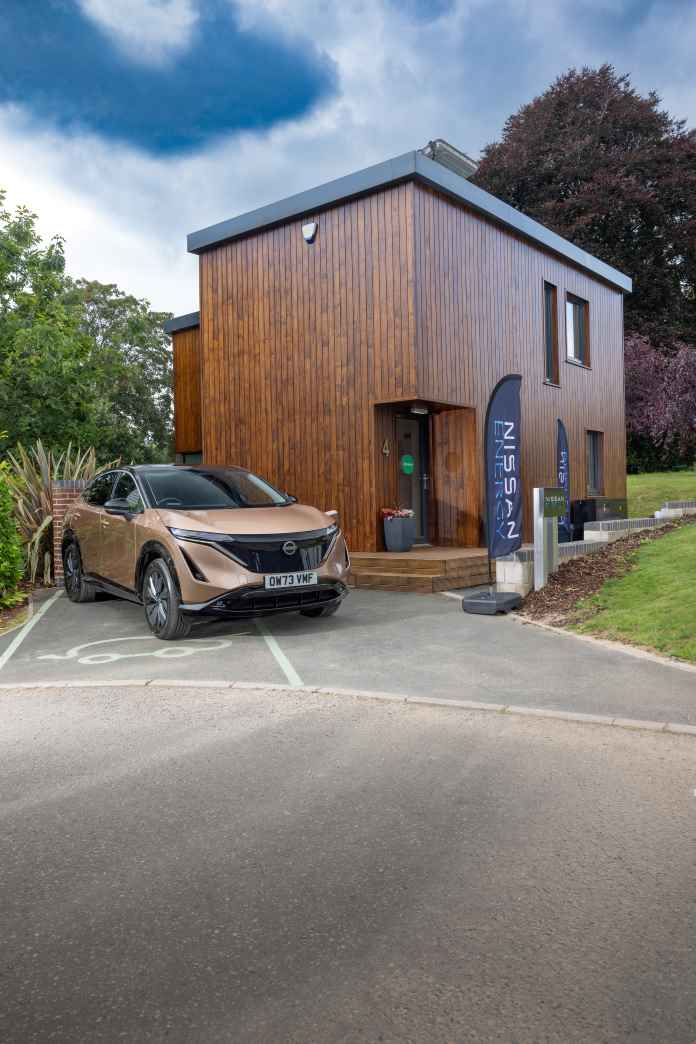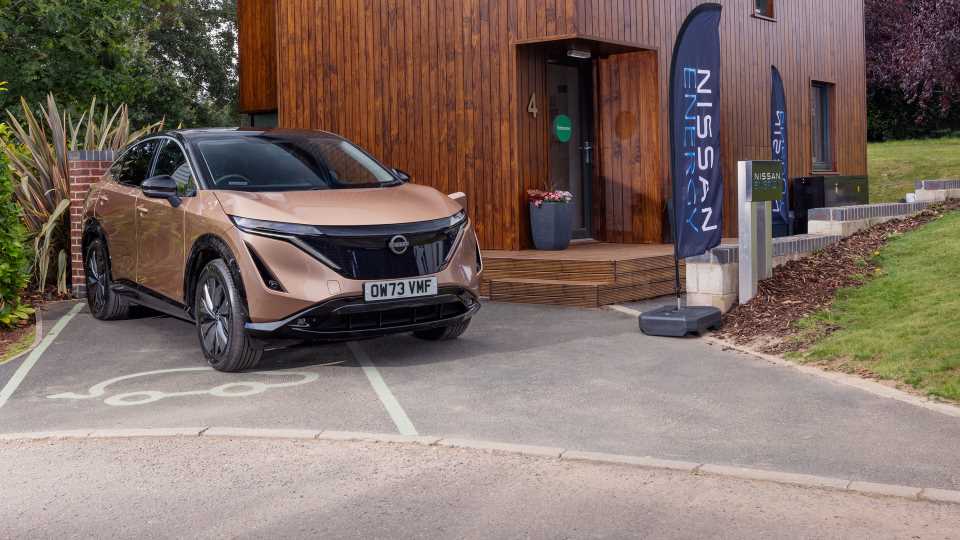Nissan Vehicle to Grid (V2G) technology It will launch from 2026….
- Vehicle to grid (V2D)- Technology that supports the transition to carbon neutral and reduces individual electricity bills
- Nissan is the first automotive brand to receive Grid certificate for AC -based solution in the UK
- The launch will begin in the UK and will spread to European markets
- The initiative will reinforce Nissan’s The Arc business plan and commitment
Nissan announced that it will start a two -way charging affordable vehicle in selected electric vehicles from 2026. This initiative is an important step in line with Nissan’s vision of creating a sustainable energy ecosystem.
The project reinforces the commitment to offer differentiated innovation and create new sources of income, which is located in Nissan’s business plan, The Arc, The Arc. In addition, the company’s long -term vision to create a cleaner, safer and more inclusive world supports the Ambition 2030.

From the vehicle that allows electric vehicle owners to use the electricity stored in the battery to provide power to their homes or sell them back to electricity network providers, the network (V2G) technology will first be released in the UK and other markets in Europe.
The project is supported by Nissan’s extensive experience in the V2G area with Nissan’s approximately 40 pilot projects worldwide.

Nissan became the first automobile company to receive a G99 Network Code certificate with an AC -based solution to provide electricity to the UK national energy supply.
The aim of the company, which is established under the flag of Nissan Energy, will be to spread V2G technology in Europe and beyond markets, to strengthen consumers with AC or DC -based V2G solutions in accordance with local infrastructure and legal requirements.
Benefits of technology from vehicle to network
Customers can reduce the annual cost of providing power to a house by using Nissan’s two -way V2G technology. The same technology, Net CO caused by charging2 It will also be able to reduce its emissions by 30 %per year for an average household house.

Equipped with V2G technology, electric vehicles equipped with electricity produced from wind or solar energy, and by directing them back to the network by reducing dependence on fossil fuels by reducing the dependence on fossil fuels, renewable energy resources can play an important role in integrating them into energy supply and increasing the mixture.
This AC-Cift-oriented system, which is one of the two-way systems that Nissan plans to offer, will benefit from an integrated rechargeable charging device to provide a lower entrance cost and will make technology access by more people. Nissan aims to offer AC bidirectional charger at a comparable price today.
Nissan’s V2G system will provide full control and flexibility on its energies through a special application for customers, as well as reducing the entry cost.
The project also played an important role in the Creative Energy Homes at the University of Nottingham, providing an operation base and supporting academic research.
Nissan continues to work with this and other partners to obtain the necessary network certification in other markets, to develop a smooth user experience and to spread the usability of technology to more customers.
Nissan’s project, which provides zero emissions driving, is charged using clean energy and can provide power in addition to the network, it is a part of a completely integrated energy ecosystem strategy.
Nissan Global Electrification Ecosystem and Home Programs Vice President Hugues Desmarchelier said in the project launch: “This technology, which we offer to our customers, has the potential to change our perspective on the car. Not only as a means of going from point A to B, but also as a mobile energy storage unit, it can save people money, support the move of our energy systems from fossil fuels and bring us closer to a carbon -free future.
“Nissan is proud of democratizing technology for the benefit of the society. This groundbreaking development in a two -way charging solution will provide a significant decrease in the cost of integrating an electric vehicle to your source of energy and the ability to use the vehicle as a source of income throughout the life of use.”
Nissan’s President of Africa, Middle East, India, Europe and Oceania Region, Guillaume Cartier, commented: “Today, one of the biggest challenges faced by the society is energy supply – how we can make it affordable, reliable and clean.
“As Nissan, we see a completely integrated, flexible and cleaner future, where their energy comes from the car on the road, not only from the electrical power plant, but from the car on the road.”

















